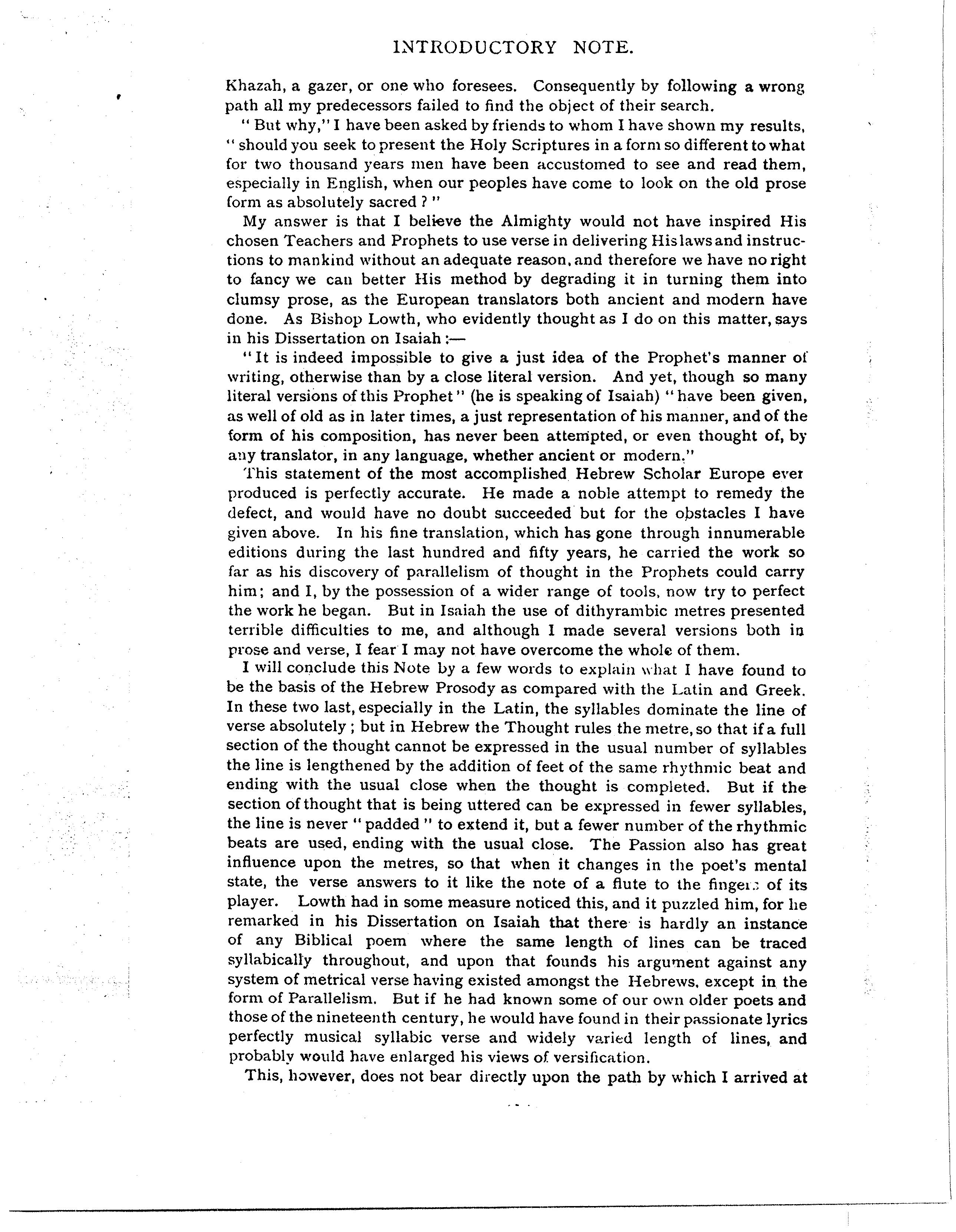II Kings - Ferrar Fenton Bible Translation page 414
The History of the People of Israel
‘ should you seek to present the Holy Scriptures in a form so different to what for two thousand years men have been accustomed to see and read them, especially in English, when our peoples have come to look on the old prose form as absolutely sacred P ' My answer is that I believe the Almighty would not have inspired His
chosen Teachers and Prophets to use verse in delivering Hislaws and instruc- tions to mankind without an adequate reason. and therefore we have no right to fancy we can better His method by degrading it in turning them into clumsy prose, as the European translators both ancient and modern have done. As Bishop Lowth, who evidently thought as I do on this matter, says in his Dissertation on Isaiah: ‘It is indeed impossible to give a just idea of the Prophet's manner of
writing, otherwise than by a close literal version. And yet, though so many have been given, as well of old as in later times, a just representation of his manner, and of the form of his composition, has never been attempted, or even thought of, by any translator, in any language, whether ancient or modern,’ ’l`his statement of the most accomplished Hebrew Scholar Europe ever
produced is perfectly accurate. He made a noble attempt to remedy the defect, and would have no doubt succeeded but for the obstacles I have given above. In his fine translation, which has gone through innumerable editions during the last hundred and fifty years, he carried the work so far as his discovery of parallelism of thought in the Prophets could carry him; and I, by the possession of a wider range of tools, now try to perfect the work he began. But in Isaiah the use of dithyrambic metres presented terrible difficulties to me, and although I made several versions both in prose and verse, I fearl may not have overcome the whole of them. I will conclude this Note by a few words to explain what I have found to
be the basis of the Hebrew Prosody as compared with the Latin and Greek. In these two last, especially in the Latin, the syllables dominate the line of verse absolutely ; but in Hebrew the Thought rules the metre,so that if a full section of the thought cannot be expressed in the usual number of syllables the line is lengthened by the addition of feet of the same rhythmic beat and ending with the usual close when the thought is completed. But if the section of thought that is being uttered can be expressed in fewer syllables, to extend it, but a fewer number of the rhythmic beats are used, ending with the usual close. The Passion also has great influence upon the metres, so that when it changes in the poet’s mental state, the verse answers to it like the note of a flute to the finger.: of its player. V Lowth had in some measure noticed this, and it puzzled him, for he remarked in his Dissertation on Isaiah that there is hardly an instance of any Biblical poem where the same length of lines can be traced syllabically throughout, and upon that founds his argument against any system of metrical verse having existed amongst the Hebrews. except in the form of Parallelism. But if he had known some of our own older poets and those of the nineteenth century, he would have found in their passionate lyrics perfectly musical syllabic verse and widely varied length of lines, and probably would have enlarged his views of versillcation. This, however, does not bear directly upon the path by which I arrived at
